Politics
Polio was nearly eradicated. Here’s why it’s making a comeback – National TenX News
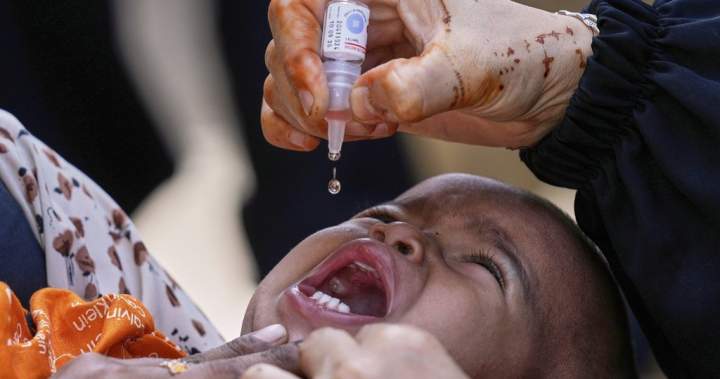
For the past decade, Sughra Ayaz has traveled door to door in southeastern Pakistan, pleading with parents to allow children to be vaccinated against polio as part of a global campaign to wipe out the paralytic disease. She hears their demands and fears. Some are practical – families need basics like food and water more than vaccines. Others are simply unfounded – the oral doses are meant to sterilize their kids.
Amid rampant misinformation and immense pressure for the campaign to succeed, Ayaz said, some managers have instructed workers to falsely mark children as immunized. And the vaccines, which must be kept cold, aren’t always stored correctly, she added.
“In many places, our work is not done with honesty,” Ayaz said.
The World Health Organization and partners embarked on their polio campaign in 1988 with the bold goal of eradication — a feat seen only once for human diseases, with smallpox in 1980. They came close several times, including in 2021, when just five cases of the natural virus were reported in Pakistan and Afghanistan. But since then, cases rebounded, hitting 99 last year, and officials have missed at least six self-imposed eradication deadlines.
Afghanistan and Pakistan remain the only countries where transmission of polio — which is highly infectious, affects mainly children under five, and can cause irreversible paralysis within hours — has never been interrupted. The worldwide campaign has focused most of its attention and funding there for the past decade.
But in its quest to eliminate the disease, the Global Polio Eradication Initiative has been derailed by mismanagement and what insiders describe as blind allegiance to an outdated strategy and a problematic oral vaccine, according to workers, polio experts and internal materials obtained by The Associated Press.

Officials have falsified vaccination records, selected unqualified people to dole out drops, failed to send out teams during mass campaigns, and dismissed concerns about the oral vaccine sparking outbreaks, according to documents shared with AP by staffers from GPEI – one of the largest and most expensive public health campaigns in history, with over $20 billion spent and nearly every country in the world involved.
In Afghanistan and Pakistan – which share a border, harbor widespread mistrust of vaccines, and have weakened healthcare systems and infrastructure – local staffers like Ayaz have for years flagged problems to senior managers. But those issues, along with concerns by staffers and outside health officials, have long gone unaddressed, insiders say.
Officials tout the successes – three billion children vaccinated, an estimated 20 million people who would have been paralyzed spared – while acknowledging challenges in Pakistan and Afghanistan. Remote villages are hard to reach, some cultural and religious authorities instruct against vaccination, and hundreds of polio workers and security staff have been killed because of their alignment with a Western-led initiative.
Dr. Jamal Ahmed, WHO’s polio director, defended progress in those two countries, citing workers’ tailored response in resistant pockets.
“There’s so many children being protected today because of the work that was done over the past 40 years,” he said. “Let’s not overdramatize the challenges, because that leads to children getting paralyzed.”
Ahmed said he believes authorities will end the spread of polio in the next 12 to 18 months. Its latest goal for eradication is 2029. The campaign says about 45 million children in Pakistan and 11 million in Afghanistan must be vaccinated this year. Children typically need four doses of two drops each to be considered fully immunized.
Dr. Zulfiqar Bhutta, who has served on advisory groups for WHO, the Gates Foundation and others, said campaign officials should listen to the criticism of its tactics.
“Continuing blindly with the same strategies that we have relied on since eradication began is unlikely to lead to a different result,” he said.
Documents show yearslong problems on polio vaccination teams
Internal WHO reports reviewing vaccination drives in Afghanistan and Pakistan over the past decade – given to AP by current and former staffers – show that as early as 2017, local workers were alerting significant problems to senior managers.
The documents flagged multiple cases of falsified vaccination records, health workers being replaced by untrained relatives and workers improperly administering vaccines.

Get weekly health news
Receive the latest medical news and health information delivered to you every Sunday.
On numerous occasions, WHO officials noted, “vaccinators did not know about vaccine management,” citing failure to keep doses properly cold. They also found sloppy or falsified reporting, with workers noting “more used vaccine vials than were actually supplied.”
According to an August 2017 report from Kandahar, Afghanistan, local government authorities and others interfered in choosing vaccinators, “resulting in the selection of underage and illiterate volunteers.”
Vaccination teams worked “in a hurried manner,” reports said, with “no plan for monitoring or supervision.” A team in Nawzad, Afghanistan, covered just half of the intended area in 2017, with 250 households missed entirely. Village elders said no one visited for at least two years.
Vaccine workers and health officials in Afghanistan and Pakistan confirmed the issues in the documents and told AP it’s hard for campaign leadership to grasp the difficulties in the field. Door-to-door efforts are stymied by cultural barriers, unfounded stories about vaccines, and the region’s poverty and transience.

“Most of the time when we go to vaccinate and knock on the door, the head of the house or the man is not at home,” said one worker, speaking on condition of anonymity because they weren’t authorized to talk to the press. “Many people find it offensive that a stranger knocks on the door and talks to a woman.”
Some workers find families have moved. Occasionally, they say, the encounter abuse.
“We have shared these problems with our senior officials,” the worker told AP. “They know about it.”
In an email response to AP’s questions about officials’ knowledge of the issues, WHO polio director Ahmed noted “operational challenges” in Afghanistan and Pakistan and said the program has “robust monitoring and evaluation processes.”
Worker Ayaz described “fake finger marking” — placing the ink used to show a child is vaccinated on their pinky even when no vaccine has been given.
“There is so much pressure,” Ayaz said.
Critics point to continued use of the oral polio vaccine
Before the first polio vaccine was developed in 1955, the disease — spread mostly from person to person, through contaminated water and via fecal particles — was among the world’s most feared, paralyzing hundreds of thousands of children annually. People avoided crowded places during epidemics, and hospital wards filled with children encased in iron lungs after the virus immobilized their breathing muscles.
Polio is mainly spread when people are exposed to water infected with the virus. In countries with poor sanitation, children often become infected when they come into contact with contaminated waste.
WHO says that as long as a single child remains infected, kids everywhere are at risk.
Eradication demands near-perfection – zero polio cases and immunizing more than 95 per cent of children.
But public health leaders and former WHO staffers say campaign efforts are far from perfect, and many question the oral vaccine.
The oral vaccine – proven to be safe and effective — has been given to more than three billion children. But there are some extremely rare side effects: Scientists estimate that for every 2.7 million first doses given, one child will be paralyzed by the live polio virus in the vaccine.
In even rarer instances, the live virus can mutate into a form capable of starting new outbreaks among unimmunized people where vaccination rates are low.
Worldwide, several hundred vaccine-derived cases have been reported annually since at least 2021, with at least 98 this year.
Most public health experts agree the oral vaccine should be pulled as soon as possible. But they acknowledge there simply isn’t enough injectable vaccine — which uses no live virus and doesn’t come with the risks of the oral vaccine — to wipe out polio alone. The injectable vaccine also is more expensive and requires more training to administer.
More than two dozen current and former senior polio officials told AP the agencies involved haven’t been willing to even consider revising their strategy to account for some of the campaign’s problems.
Dr. Tom Frieden, a former director of the U.S. Centers for Disease Control and Prevention who sits on an independent board reviewing polio eradication, said it would be impossible to eliminate polio without the oral vaccine. But he’s urged authorities to find ways to adapt, such as adopting new methods to identify polio cases more quickly. Since 2011, he and colleagues have issued regular reports about overall program failures.
“There’s no management,” he said, citing a lack of accountability.

Last year, former WHO scientist Dr. T. Jacob John twice emailed WHO Director-General Tedros Adhanom Ghebreyesus calling for a “major course correction.” John shared the emails with AP and said he’s received no response.
“WHO is persisting with polio control and creating polio with one hand and attempting to control it by the other,” John wrote.
In his response to AP, WHO polio director Ahmed said the oral vaccine is a “core pillar” of eradication strategy and that “almost every country that is polio-free today used (it) to achieve that milestone.”
“We need to step back and really care for the people,” he said. “The only way we can do that in large parts of the world is with oral polio vaccine.”
Ahmed also pointed to the success WHO and partners had eliminating polio from India, once considered a nearly impossible task. In the four years before polio was wiped out there, health workers delivered about 1 billion doses of the oral vaccine to more than 170 million children.
Today, nearly all of the world’s polio cases — mostly in Africa and the Middle East — are mutated viruses from the oral vaccine, except for Afghanistan and Pakistan.
Scott Barrett, a Columbia University professor, called for an inquiry into how things went so wrong – particularly with a failed effort in 2016, when authorities removed a strain from the oral vaccine. They miscalculated, leading to outbreaks in more than 40 countries that paralyzed more than 3,000 children, according to an expert report commissioned by WHO. Last year, a mutated virus traced to that effort paralyzed a baby in Gaza.
“Unless you have a public inquiry where all the evidence comes out and WHO makes serious changes, it will be very hard to trust them,” he said.
Mistrust of the polio eradication effort persists
With an annual budget of about $1 billion, the polio initiative is among the most expensive in all of public health. This year, the U.S. withdrew from WHO, and President Donald Trump has cut foreign aid. WHO officials have privately admitted that sustaining funding would be difficult without success.
Some say the money would be better spent on other health needs.
“We have spent more than $1 billion (in external polio funding) in the last five years in Pakistan alone, and it didn’t buy us any progress,” said Roland Sutter, who formerly led polio research at WHO. “If this was a private company, we would demand results.”
Villagers, too, have protested the cost, staging hundreds of boycotts of immunization campaigns since 2023. Instead of polio vaccines, they ask for medicine, food and electricity.
In Karachi, locals told AP they didn’t understand the government’s fixation on polio and complained of other issues — dirty water, heroin addiction. Workers are accompanied by armed guards; Pakistani authorities say more than 200 workers and police assigned to protect them have been killed since the 1990s, mostly by militants.
The campaign also is up against a wave of misinformation, including that the vaccine is made from pig urine or will make children reach puberty early. Some blame an anti-vaccine sentiment growing in the U.S. and other countries that have largely funded eradication efforts and say it’s reaching even remote areas of Afghanistan and Pakistan.
In suburban southwest Pakistan, Saleem Khan, 58, said two grandchildren under five were vaccinated over his family’s objections.

“It results in disability,” said Khan, without citing evidence for his belief. “They are vaccinated because officials reported our refusal to authorities and the police.”
Svea Closser, professor of international health at Johns Hopkins University, said Pakistan and Afghanistan were less resistant to immunization decades ago. Now, people are angry about the focus on polio and lack of help for diseases like measles or tuberculosis, she said, spurring conspiracy theories.
“Polio eradication has created a monster,” Closser said. It doesn’t help, she added, that in this region, public trust in vaccine campaigns was undermined when the CIA organized a fake hepatitis drive in 2011 in an attempt to get DNA and confirm the presence of Osama bin Laden or his family.
Workers see that continued mistrust every day.
In a mountainous region of southeastern Afghanistan where most people survive by growing wheat and raising cows and chickens, a mother of five said she’d prefer that her children be vaccinated against polio, but her husband and other male relatives have instructed their families to reject it. They believe the false rumors that it will compromise their children’s fertility.
“If I allow it,” the woman said, declining to be named over fears of family retribution, “I will be beaten and thrown out.”
—Cheng reported from London.
Politics
Canada talks trade with Qatar as Carney touches down in Doha – National TenX News
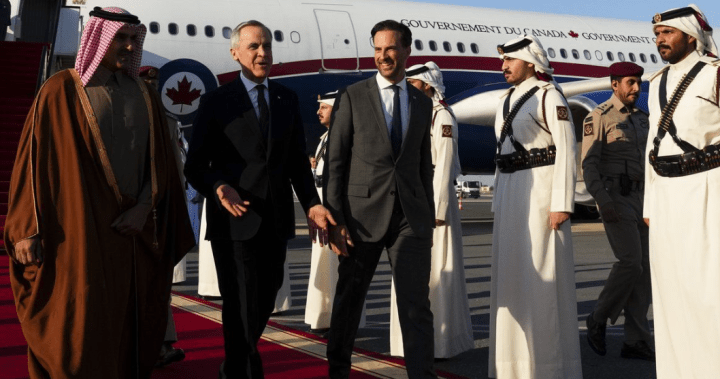
Prime Minister Mark Carney arrived in Doha on Saturday as part of a push to attract foreign investment and deepen Canada’s economic partnerships beyond its traditional allies.
Carney’s visit comes on the heels of his visit to China and follows the recent presentation of a new federal investment budget aimed at positioning Canada as a stable, attractive destination for global capital.
In a news conference on Saturday, Finance Minister François-Philippe Champagne said Canada is working to broaden its economic relationships as global trade patterns shift.
Qatar is viewed by Ottawa as a strategic partner, with officials pointing to the country’s significant investment capacity and growing influence on the global stage.

Get breaking National news
For news impacting Canada and around the world, sign up for breaking news alerts delivered directly to you when they happen.
“We need to reduce our dependence and increase our self-reliance to find a strategic path forward,” Champagne said.
“Engaging with the Middle East and China is necessary for Canada, just like our European partners have done,” Champagne added. “We buy more from the U.S.A. than anywhere else, but the trading climate right now is different.”
The conference highlighted Canada’s industrial capacity and trade advantages as key selling points for potential investors.
Champagne also said international engagement is critical as Canada works to raise its profile among global investors.
“We are one of the G7s with very big industries. We build cars, planes, ships, we have an abundance of energy, and we are the only one with free trade with all G7,” Champagne said. “With the way the world is changing, you better diversify, supply chain is changing and we need to adapt.”
Prime Minister Carney is expected to meet with senior Qatari officials, including Emir Sheikh Tamim bin Hamad Al Thani, as well as representatives of the Qatar Investment Authority.
His office says the talks will focus on expanding trade access and forging partnerships in artificial intelligence, infrastructure, energy and defence.
The visit comes amid heightened geopolitical tensions in the region, though officials say the schedule remains unchanged.
© 2026 Global News, a division of Corus Entertainment Inc.
Politics
How could Canada, EU, NATO respond to a U.S. takeover of Greenland? – National TenX News
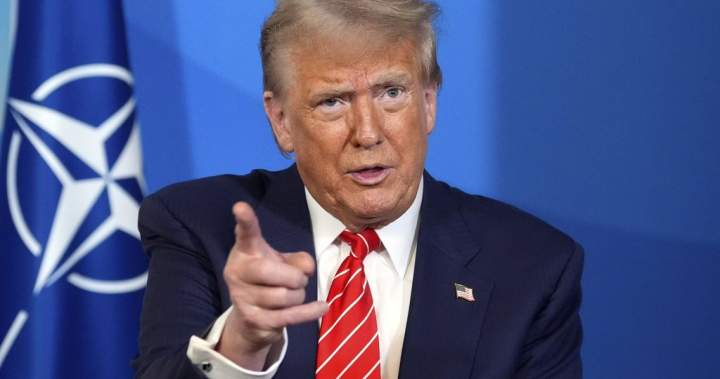
The possibility of a forceful U.S. takeover of Greenland is raising many unprecedented questions — including how Canada, the European Union and NATO could respond or even retaliate against an ostensible ally.
A high-level meeting between Greenlandic, Danish and U.S. officials this week did not resolve the “fundamental disagreement” over the territory’s sovereignty but did set the stage for more talks. The White House made clear Thursday that U.S. President Donald Trump’s desire to control Greenland has not changed after the meeting.
“He wants the United States to acquire Greenland. He thinks it’s in our best national security to do that,” White House press secretary Karoline Leavitt said.
Denmark and European allies are sending more troops to the territory in a show of force and to display a commitment to Arctic security.

Experts say there are other, non-military measures available in the event of a U.S. annexation or invasion of Greenland, or which could at least be threatened to try and get Trump to back down.
Whether those economic measures are actually used is another matter, those experts say.
“I think it remains highly unlikely that we’ll get to that point where we have to seriously discuss consequences for a U.S. move on Greenland,” said Otto Svendsen, an associate fellow with the Europe, Russia, and Eurasia Program at the Center for Strategic and International Studies.
“So it remains contingency planning for a highly unlikely event. That being said … Denmark would certainly do everything in its power to rally a very robust European response.”
Here’s what that could entail.
EU trade, tech disruptions?
Experts agree the biggest pressure points that can be used in the U.S. surround trade and technology.
The European Parliament’s trade committee is currently debating whether to postpone implementing the trade deal signed between Trump and the EU last summer to protest the threats against Greenland, Reuters reported Wednesday.
Many lawmakers have complained that the deal is lopsided, with the EU required to cut most import duties while the U.S. sticks to a broad 15 per cent tariff for European goods.

Get daily National news
Get the day’s top news, political, economic, and current affairs headlines, delivered to your inbox once a day.
An even bolder move would be triggering the EU’s anti-coercion instrument — known as the “trade bazooka” — that would allow the bloc to hit non-member nations with tariffs, trade restrictions, foreign investment bans, and other penalties if that country is found to be using coercive economic measures.
Although the regulation defines coercion as “measures affecting trade and investment,” Svendsen said it could feasibly be used in a diplomatic or territorial dispute as well.
“EU lawyers have proven themselves to be very creative in recent years,” he said.
However, David Perry, president of the Canadian Global Affairs Institute, said in an email that economic measures against the U.S. are unlikely “given the massive asymmetry in the defence and economic relationship between the U.S.” and other western nations.
“Any kind of sanction against the U.S. doesn’t make sense for the same reason they can impose tariffs on others: they have the power,” Perry added.

Target U.S. tech companies?
The likeliest — and potentially least harmful — scenario for retaliation in the event of an attack on Greenland, Svendsen said, would be fines or bans against U.S. tech companies like Google, Meta and X operating in Europe.
That’s because the Trump administration has taken particular focus on preventing what they call “attacks” on American companies by foreign governments seeking to regulate their online content or tax their revenues, which has led to calls on Canada, Britain and the EU to repeal laws like digital services taxes.
“I think that would be a really smart and targeted way to get to economic interests very close to the president, while minimizing the direct impact on the on the European economy,” Svendsen said, calling such a move “low-hanging fruit.”
He also compared a future U.S. tech platform ban to how Europe moved to wean itself off Russian gas after the full-scale invasion of Ukraine in 2022.
“If you told anyone back then that Europe would basically rid itself of its dependence on Russian gas basically within a two-year period … that would have been considered completely impossible,” he said.
“Weaning the European economy off of U.S. tech would certainly be painful in the short term, but they’ve proven that they can get off those dependencies quickly if there is political will behind it in the past.”
A U.S. hostile takeover of Greenland would mean the “end” of the NATO alliance, experts and European leaders have said.
Trump himself has acknowledged it could be a “choice” between preserving the alliance or acquiring Greenland.
There is no provision within the NATO founding treaty that addresses the possibility of a NATO member taking territory from another, and how the alliance should respond to such an act.
A NATO spokesperson told Global News it wouldn’t “speculate on hypothetical scenarios” when asked how it could potentially act.

“None of this would be actionable in a NATO sense,” Perry said. “It’s an alliance that’s organized to bind the U.S. to European security, and revolves around the U.S. So there’s no scenario of NATO doing that to the U.S.”
Denmark and other European nations could move to reduce or close U.S. military bases in their countries as a possible response, experts say.
Balkan Devlen, a a senior fellow at the Macdonald-Laurier Institute and director of its Transatlantic Program, said in an interview that a U.S. annexation of Greenland would force Canada to focus entirely on boosting its defences in the Arctic.
That may include trying to decouple from NORAD, the joint northern defence network with the U.S., in favour of a purely domestic Arctic command, he said — although that process would take years and require Canada to increase defence spending even further.
“Never mind five per cent (of GDP) — we will probably need to go like seven, eight, nine per cent on defence spending to be able to do anything of that sort,” he said. “It’s not even clear that we’ll be able to have enough people to do that.”
Devlen added that any retaliatory action, whether military or financial, needs to be targeted and proportionate to what the U.S. does.
“The problem with nuclear options is that once you use it, it’s gone,” he said. “And if it doesn’t do the damage or make the change of behaviour on the other party, you’ve basically lost a lot of leverage and you might actually sustain a lot more loss yourself.”
Politics
Louvre raises ticket prices for non-Europeans, hitting Canadian visitors TenX News
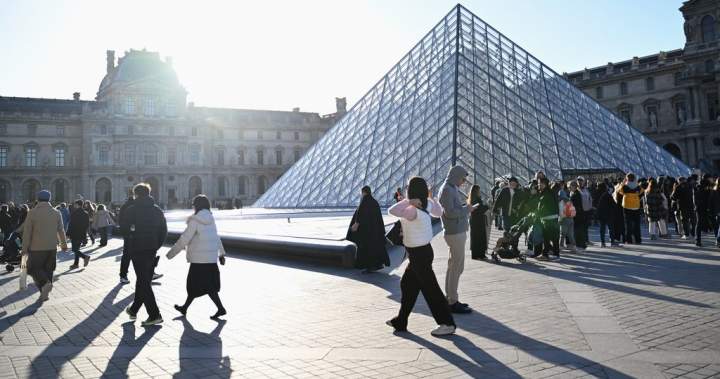
A trip to the world’s most-visited museum is about to cost Canadians significantly more.
France has hiked ticket prices at the Louvre by 45 per cent for visitors from outside the European Union, a move that is fuelling debate over so-called dual pricing and the growing backlash against overtourism.
Starting this week, adult visitors from non-EU countries, including Canada, must pay €32 to enter the Paris landmark, up from €22. That’s an increase from about $35 to $52 Canadian.

Visitors from EU countries, as well as Iceland, Liechtenstein and Norway, will continue to pay the lower rate.
The price hike comes as the Louvre grapples with repeated labour strikes, a high-profile daylight jewel heist last October that prompted a costly security overhaul, and years of chronic overcrowding. The museum attracts roughly nine million visitors annually.

Get breaking National news
For news impacting Canada and around the world, sign up for breaking news alerts delivered directly to you when they happen.
Some Canadian tourists told Global News they feel unfairly targeted.
“We didn’t cause the robberies or some of the other issues that happened and we are paying the consequences,” said Allison Moore, visiting Paris from Newfoundland with her daughter. “[In] Canada we don’t discriminate over pricing like that.”
Others argue tourists already shoulder higher costs simply by travelling long distances.
“In general for tourists, I think things should be a little cheaper than for local people, because we have to travel to come all the way here,” said Darla Daniela Quiroz, another Canadian visitor. “It should be equal pricing, or a little bit cheaper.”

Even some Europeans question the two-tiered system. A French tourist interviewed outside the museum said there was “no reason” to charge non-Europeans more and that the fee should be the same for everyone.
Tourism experts say the Louvre’s financial pressures help explain the decision.
“The Louvre is really cash-strapped right now and needs to do something,” said Marion Joppe, a professor at the University of Guelph. “It can’t really look to the government, which is already struggling with its own budget.”
The move also reflects a broader global pushback against mass tourism. Anti-tourism protests have spread across parts of Spain, New Zealand has increased its entry tax, and the United States recently raised national park fees for foreign visitors.
“You take Paris — it gets about 50 million tourists a year,” said Julian Karaguesian, an economist at McGill University. “That’s roughly a million a week. The city simply wasn’t built for those kinds of numbers.”
Despite the higher price, many visitors say they will still line up to see the Mona Lisa and other of the museum’s famous artworks.
“It’s one of the main attractions. It’s on everybody’s list,” Moore said. “We’re still going to go, and hopefully it will be worth it in the end.”
© 2026 Global News, a division of Corus Entertainment Inc.
-

 Fashion10 months ago
Fashion10 months agoThese ’90s fashion trends are making a comeback in 2017
-

 Entertainment10 months ago
Entertainment10 months agoThe final 6 ‘Game of Thrones’ episodes might feel like a full season
-
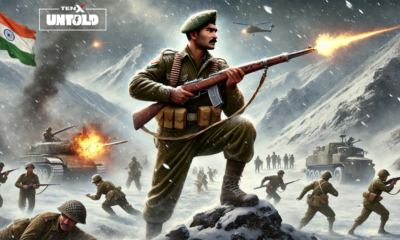
 TenX Exclusive10 months ago
TenX Exclusive10 months agoअमर योद्धा: राइफलमैन जसवंत सिंह रावत की वीरगाथा
-

 Politics8 months ago
Politics8 months agoBefore being named Pope Leo XIV, he was Cardinal Robert Prevost. Who is he? – National TenX News
-

 Politics9 months ago
Politics9 months agoPuerto Rico faces island-wide blackout, sparking anger from officials – National TenX News
-

 Fashion10 months ago
Fashion10 months agoAccording to Dior Couture, this taboo fashion accessory is back
-

 Tech10 months ago
Tech10 months agoIndian-AI-software-which-caught-30-thousand-criminals-and-busted-18-terrorist-modules-its-demand-is-increasing-in-foreign-countries-also – News18 हिंदी
-

 Politics9 months ago
Politics9 months agoScientists detect possible signs of life on another planet — but it’s not aliens – National TenX News














